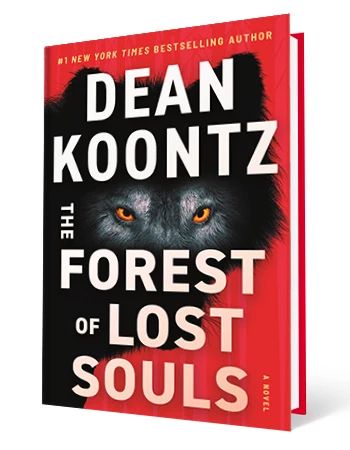AARP Hearing Center


With more than 100 books to his name and an 80th birthday around the corner, best-selling author Dean Koontz, 79, says he has no plans to retire. “It’s hard work, but it’s also play if you love it,” he says. His latest novel, The Forest of Lost Souls, out Sept. 24, tells the story of a fearless woman forced to fight against a group of powerful men. Koontz tells AARP the advice he’d give to young authors, how a golden retriever named Trixie changed his life, and where he stores his collection of 20,000 books.
This interview has been edited for length and clarity.


AARP Membership— $12 for your first year when you sign up for Automatic Renewal
Get instant access to members-only products and hundreds of discounts, a free second membership, and a subscription to AARP the Magazine.
Where do your book ideas come from?
Sometimes it’s just a line you hear of a song. Like I heard a line in a Paul Simon song called “Patterns,” and it inspired the novel Life Expectancy in about 15 minutes. Other times, you have no idea where it came from.


You turn 80 next July. Do you think the writing process helps keep you mentally sharp?
I absolutely do believe that staying involved in writing keeps me mentally alert. My wife [Gerda Ann Cerra Koontz, 78] does about half the work in this enterprise, and she’s got a background in accounting. I can’t balance the checkbook, so she takes care of all the investments and everything related to employees, and I take everything related to the writing, and it’s kept us both pretty sharp even to this age.
You and your wife were high school sweethearts and will be married 58 years this October. What’s your secret to staying together so long?
One big thing is we both have the same sense of humor. And I think that’s important, because the way we get through all the vicissitudes of life is with laughter. And we both were heavy readers before we met each other, and we both tend to take the right things seriously and don’t worry about the small stuff.
Do you like celebrating birthdays? And do you have any plans in the works for your 80th?
Not really. Now and then a friend will say, “We want to take you out for your birthday.” But for my 60th, I had the first birthday party of my life. I made it a big, big event. And that was enough. I was amazed to get to 60. So now that I’m well beyond it, it’s not so unusual anymore.




























































You Might Also Like
Kenny G Is Having More Fun on Stage Than Ever Before
Saxophonist talks new memoir, piloting his own plane and golfing with George Lopez, Ray Romano and Martin Short
Kathryn Hahn Is Loving Life as a Marvel Universe Witch
Actress shares the real-life superpower she’d love to possess and how she feels about aging in Hollywood
Drew Carey Loves ‘Everything’ About Hosting ‘The Price Is Right’
Game show host shares advice from Bob Barker and why he advocates for mental health awareness
Recommended for You